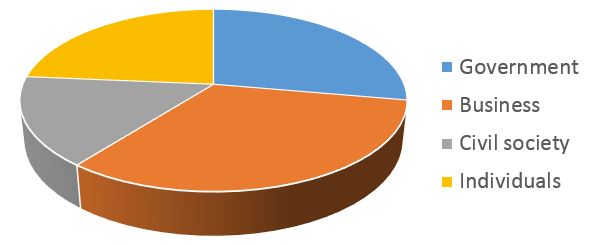Blue Planet Blues
My week began with a guest lecture to the students on the new Agri-food Technology MSc course at the University of Lincoln, covering similar topics as at York University a few weeks ago (see the ‘International Relations’ post below) and again took the opportunity to test the audience’s thoughts on a number of aspects of sustainability. There was a slight difference this time in that the group included similar numbers of university staff and students, so I separated their responses to assess the impact of age. These continued a theme that I have regularly noted before; younger people have more faith in the role of governments in addressing global challenges, whereas the older members of the audience believe that individuals have the greater responsibility. Overall though, as has always been the case when I’ve asked the question, business is deemed to have the greatest responsibility.

Looking at the UN’s Sustainable Development Goals (SDGs) the ones viewed as most important were Climate Action (SDG13) and Clean Water & Sanitation (SDG6). Viewed as least important were Life Below Water (SDG14) and Partnerships For The Goals (SDG17). Survey after survey shows Climate Action rated as very important in developed economies and Life Below Water languishing towards the bottom of the table of what people deem important globally. It strikes me that this is a clear instance of the ‘tragedy of the commons’, where there is no collective responsibility for a common Good. Despite the failure of a recent UN resolution on targets for reducing plastic waste, perhaps there is still room for hope that there will be an improvement. The recent emphasis on ocean plastics (which I mentioned in the ‘Policy and Practice’ post below) including, on the same day I was speaking at Lincoln, an announcement on policies to tackle plastic waste announced by the Secretary of State for the Environment, Food and Rural Affairs, may see Life Below Water gain increased emphasis. It is impossible to argue against the intent of any of the SDGs, so let’s hope that a higher profile for SDG14 does not result in another Goal suffering less attention.

I have also been working on the SDGs with a client this week, and there will be more to talk about on that subject in the New Year. In the meantime, compliments of the season to all my readers.